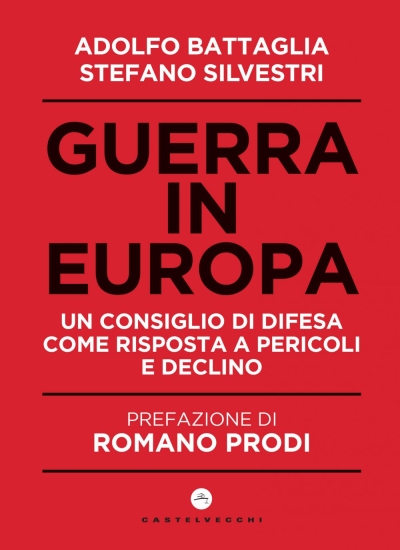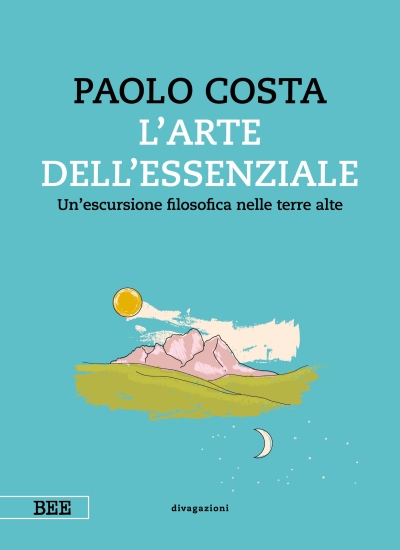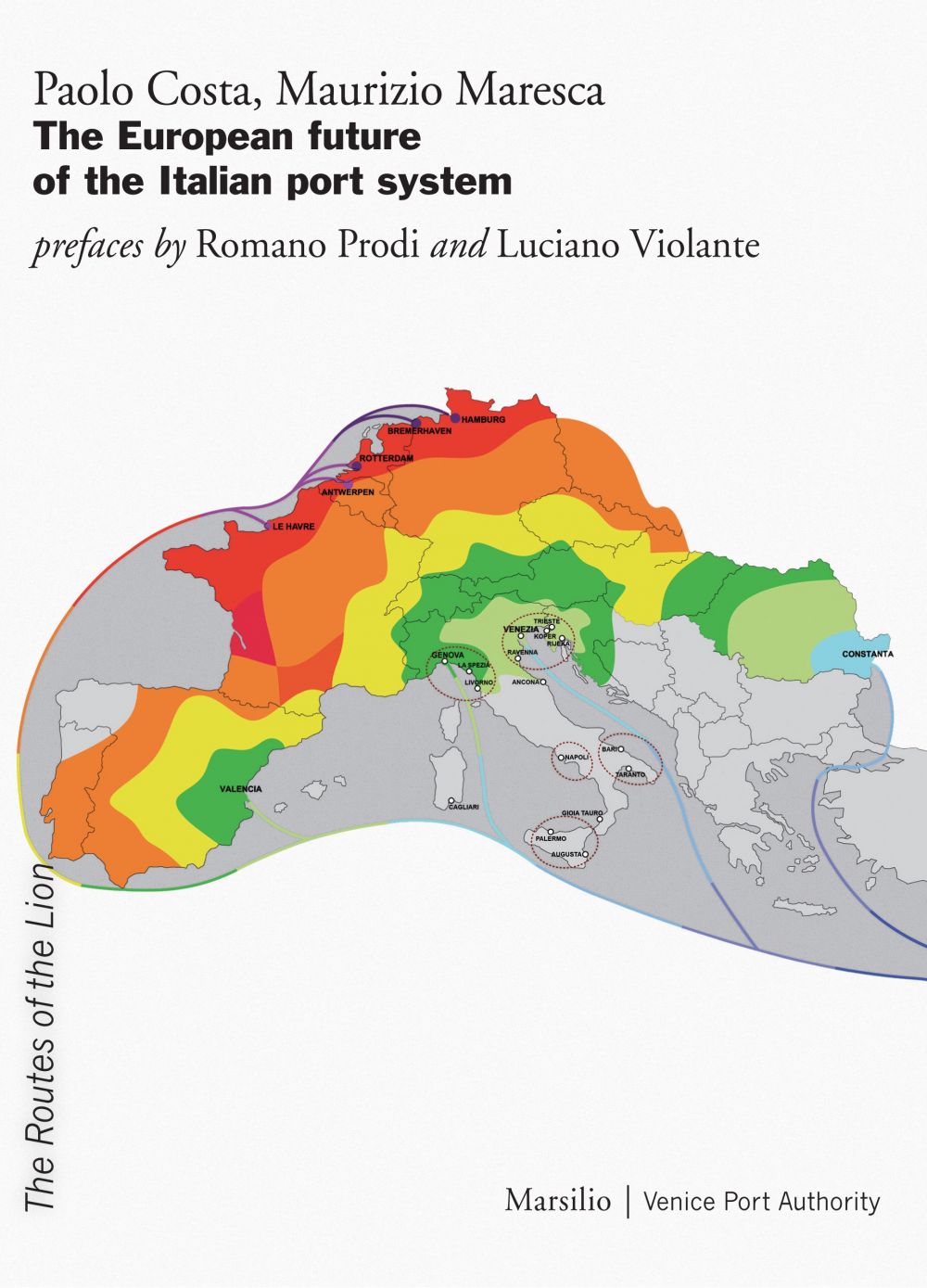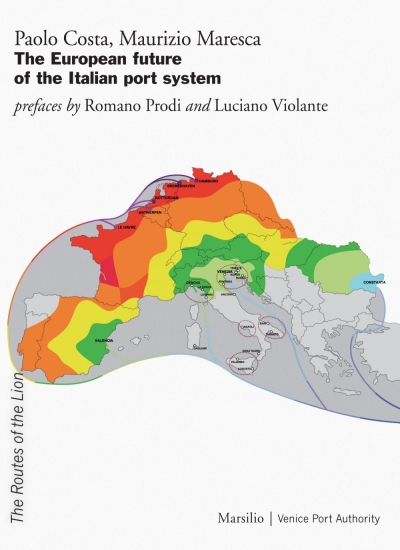The European future of the Italian port system
Autore:
Editore:
Anno:
2014
ISBN:
9788831737302
DRM:
Adobe (The downloaded file has the .acsm extension and is converted into the purchased format upon installation on your eReader)
Autore:
Editore:
Anno:
2014
ISBN:
9788831737302
DRM:
Adobe (The downloaded file has the .acsm extension and is converted into the purchased format upon installation on your eReader)
Description
The future of Italian port activities is either European or nothing at all. Like every other ‘industry’ in our country, port activities are faced with the need to meet the challenges of the technological and organisational innovation of their production system and the globalisation of their markets. In the sea port sector such globalisation appears in the form of very large ships and very large ports, which tend to exclude from the transoceanic market any ports unable to adapt. The future is of ports located along the routes connecting the big world markets, but only if they are capable of handling big volumes of traffic and doing so with growing efficiency. The ports must be integrated into a broad logistical system based on port back-up facilities and interports able to consolidate/deconsolidate traffic directed along multi-modal corridors towards large contestable markets. None of the Italian ports is currently in a position to vie with the North Sea ports for world traffic to and from Europe.
It will be possible to emerge from this inferior condition only by reordering the ports into a few multi-port systems, exploiting the ‘opportunity’ provided by the new strategy to construct the trans-European transport network, the Ten-T, by 2030.
The condition is that Italy radically reforms its legal framework in a European direction: reducing and hierarchising its port authorities, opening up the port services and technical-nautical markets to greater competition, aligning the granting of concessions and port work to European law, and reforming the road and rail freight traffic system in a perspective of greater environmental sustainability. The advantages that may arise from this approach are exemplified in the case of the North Adriatic multi-port corridor. It is the most ‘European’ of all because of the cross-border functional need to see the Italian ports of Ravenna, Venice and Trieste working in a system of coopetition (cooperation and competition) with the Slovenian port of Koper and the Croatian port of Rijeka.
The contribution made by the technological and organisational innovation of the Venice ‘call’ to achieving the common North Adriatic objectives is illustrated by a description of the project for the integrated offshore-onshore port now at an advanced stage of development.
Biographical notes
Paolo Costa è stato presidente dell’Autorità portuale di Venezia. Professore ordinario di Economia dal 1980 al 2003, è stato rettore dell’Università Ca’ Foscari di Venezia (1992-1996), ministro dei Lavori pubblici e delle Aree urbane (1996-1998), sindaco di Venezia (2000-2005), parlamentare europeo (1999-2009) e presidente della Commissione Trasporti (2003-2009) del Parlamento europeo.
Maurizio Maresca, Ordinario di diritto dell’Unione Europea nell’Università di Udine, ha insegnato in varie università italiane e all’estero. Ha diretto la Fondazione etl – European Transport Law. Esperto di diritto dell’Unione Europea, si è occupato di numerosi
dossier fra cui , nel periodo 1997-1999, della riorganizzazione del trasporto aereo in occasione della ristrutturazione di Alitalia, della fusione con Klm e dell’avvio di Malpensa, della riorganizzazione del comparto autostradale, della promozione dell’intermodalità e della riforma della portualità. Ha svolto incarichi istituzionali in Italia e all’estero fra cui lo European Forum for Energy and Transport, il Presidente Autorità portuale di Trieste, il Consigliere di Amministrazione di Alitalia.
Luciano Violante, professore ordinario di diritto e procedura penale, magistrato e a lungo parlamentare del Pci, del Pds, dei Ds e del Pd, è stato presidente della Camera dei deputati dal 1996 al 2001. Per Einaudi ha curato tre volumi degli Annali della Storia d’Italia. Come autore, sempre per Einaudi, ha pubblicato Non è la piovra. Dodici tesi sulle mafie (1994), Un mondo asimmetrico (2003), Magistrati (2009), Politica e menzogna (2013), Il dovere di avere doveri (2014), Democrazie senza memoria (2017). Per Solferino ha pubblicato Colpire per primi (2019), e per il Mulino Giustizia e mito (con Marta Cartabia, 2018), Sostiene Creonte (2021) e Senza vendette (2022).
Tags
By the same author
39
-41
 IL PRIMATO DELLA POLITICA
Dialogo sul potere, la fiducia, il rispetto
IL PRIMATO DELLA POLITICA
Dialogo sul potere, la fiducia, il rispetto
Luciano Violante, Rubbettino Editore
 IL PRIMATO DELLA POLITICA
Dialogo sul potere, la fiducia, il rispetto
IL PRIMATO DELLA POLITICA
Dialogo sul potere, la fiducia, il rispettoLuciano Violante, Rubbettino Editore
5,99 €
BUONE REGOLE PER LA CASTA
Lodi, garanzie parlamentari, insindacabilità, conflitti di interesse ed altre storie
Lodi, garanzie parlamentari, insindacabilità, conflitti di interesse ed altre storie
11.99 €
39
-41
 BUONE REGOLE PER LA CASTA
Lodi, garanzie parlamentari, insindacabilità, conflitti di interesse ed altre storie
BUONE REGOLE PER LA CASTA
Lodi, garanzie parlamentari, insindacabilità, conflitti di interesse ed altre storie
Luciano Violante, Gangemi Editore
 BUONE REGOLE PER LA CASTA
Lodi, garanzie parlamentari, insindacabilità, conflitti di interesse ed altre storie
BUONE REGOLE PER LA CASTA
Lodi, garanzie parlamentari, insindacabilità, conflitti di interesse ed altre storieLuciano Violante, Gangemi Editore
11,99 €
39
-41
 "MA IO TI HO SEMPRE SALVATO"
La maschera della morte e il nomos della vita
"MA IO TI HO SEMPRE SALVATO"
La maschera della morte e il nomos della vita
Luciano Violante, Bollati Boringhieri
 "MA IO TI HO SEMPRE SALVATO"
La maschera della morte e il nomos della vita
"MA IO TI HO SEMPRE SALVATO"
La maschera della morte e il nomos della vitaLuciano Violante, Bollati Boringhieri
8,99 €
39
-41
 PASSARE LA MANO
Memorie di una donna dal Novecento incompiuto
PASSARE LA MANO
Memorie di una donna dal Novecento incompiuto
Paola Gaiotti de Biase, Viella Libreria Editrice
 PASSARE LA MANO
Memorie di una donna dal Novecento incompiuto
PASSARE LA MANO
Memorie di una donna dal Novecento incompiutoPaola Gaiotti de Biase, Viella Libreria Editrice
17,99 €
39
-41
 IMPRESE PRIVATE E PUBBLICHE VIRTÙ
Progetti e visioni in dialogo sul bene comune
IMPRESE PRIVATE E PUBBLICHE VIRTÙ
Progetti e visioni in dialogo sul bene comune
Simone Bemporad, Marsilio
 IMPRESE PRIVATE E PUBBLICHE VIRTÙ
Progetti e visioni in dialogo sul bene comune
IMPRESE PRIVATE E PUBBLICHE VIRTÙ
Progetti e visioni in dialogo sul bene comuneSimone Bemporad, Marsilio
9,99 €
39
-41
 GUERRA IN EUROPA
Un Consiglio di Difesa come risposta a pericoli e declino
GUERRA IN EUROPA
Un Consiglio di Difesa come risposta a pericoli e declino
Adolfo Battaglia, Castelvecchi
 GUERRA IN EUROPA
Un Consiglio di Difesa come risposta a pericoli e declino
GUERRA IN EUROPA
Un Consiglio di Difesa come risposta a pericoli e declinoAdolfo Battaglia, Castelvecchi
7,99 €
39
-41
 CORSA ALLA TERRA
Cibo e agricoltura nell'era della nuova scarsità
CORSA ALLA TERRA
Cibo e agricoltura nell'era della nuova scarsità
Paolo De Castro, Donzelli Editore
 CORSA ALLA TERRA
Cibo e agricoltura nell'era della nuova scarsità
CORSA ALLA TERRA
Cibo e agricoltura nell'era della nuova scarsitàPaolo De Castro, Donzelli Editore
10,99 €
39
-41
 IL POTERE DEL CUORE (II ED.)
Venticinque anni a Gerusalemme
IL POTERE DEL CUORE (II ED.)
Venticinque anni a Gerusalemme
Pierbattista Pizzaballa, Edizioni Terra Santa
 IL POTERE DEL CUORE (II ED.)
Venticinque anni a Gerusalemme
IL POTERE DEL CUORE (II ED.)
Venticinque anni a GerusalemmePierbattista Pizzaballa, Edizioni Terra Santa
4,99 €
39
-41
 A CAVALLO DEL MURO
I miei giorni nell'Europa dell'Est
A CAVALLO DEL MURO
I miei giorni nell'Europa dell'Est
Demetrio Volcic, Sellerio Editore
 A CAVALLO DEL MURO
I miei giorni nell'Europa dell'Est
A CAVALLO DEL MURO
I miei giorni nell'Europa dell'EstDemetrio Volcic, Sellerio Editore
11,99 €
39
-41
 DUE GENERAZIONI, UNA RIVOLUZIONE
Proposte per affrontare le sfide comuni
DUE GENERAZIONI, UNA RIVOLUZIONE
Proposte per affrontare le sfide comuni
Vannino Chiti, Rubbettino Editore
 DUE GENERAZIONI, UNA RIVOLUZIONE
Proposte per affrontare le sfide comuni
DUE GENERAZIONI, UNA RIVOLUZIONE
Proposte per affrontare le sfide comuniVannino Chiti, Rubbettino Editore
9,99 €
39
-41
 L'ARTE DELL'ESSENZIALE
Un'escursione filosofica nelle terre alte
L'ARTE DELL'ESSENZIALE
Un'escursione filosofica nelle terre alte
Paolo Costa, Bottega Errante Edizioni
 L'ARTE DELL'ESSENZIALE
Un'escursione filosofica nelle terre alte
L'ARTE DELL'ESSENZIALE
Un'escursione filosofica nelle terre altePaolo Costa, Bottega Errante Edizioni
9,99 €
39
-41
 ITIO IN PARTES
Contropoteri repubblicani e sistema costituzionale
ITIO IN PARTES
Contropoteri repubblicani e sistema costituzionale
Paolo Costa, Vita e Pensiero
 ITIO IN PARTES
Contropoteri repubblicani e sistema costituzionale
ITIO IN PARTES
Contropoteri repubblicani e sistema costituzionalePaolo Costa, Vita e Pensiero
9,99 €





















